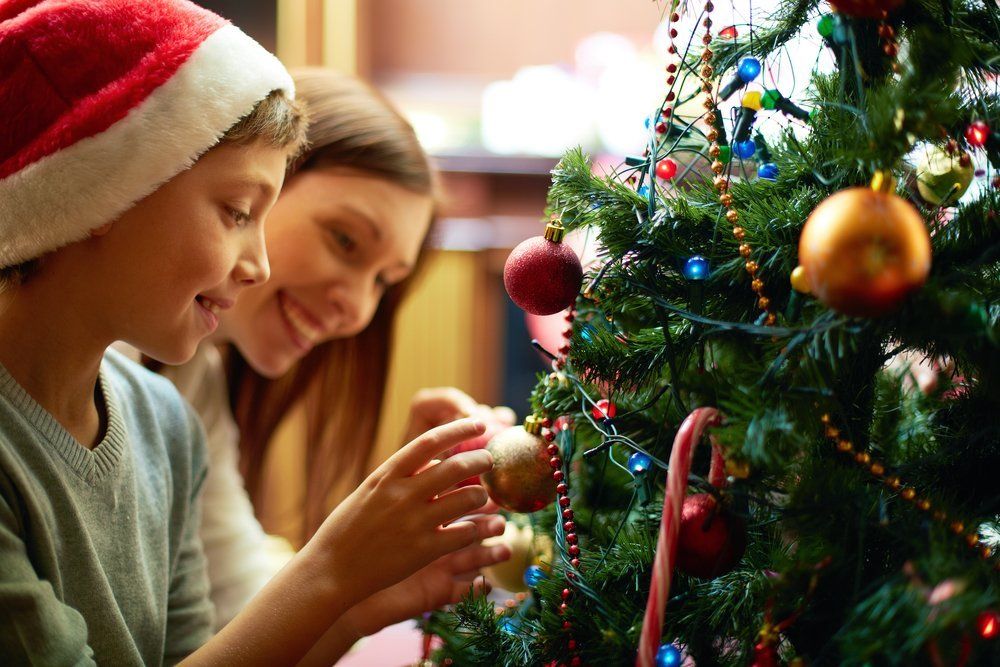Fresh Ideas to make your Christmas Very Merry
Build connections that lasts beyond the decorations
Unless you’re a Grinch, Christmas Day
promises family, friends, fantasy and fun; a time to celebrate and enjoy each other’s company. Unfortunately, for many, Christmas Day can
also descend into chaos with unmet expectations and strong emotions. But it
doesn’t have to. With some forward planning and a few tips for managing
in the moment you could make your Christmas Day merry.
We spend hours, days, weeks even, planning Christmas: where and with whom we are going to spend it, what decorations and presents to buy, what to eat and drink etc.. We suggest also giving some time to ‘setting up for success’ - considering in advance how the day itself is going to unfold, communicate effectively and foresee hotspots before they take hold.
1. Get everyone in the mood
A good place to start is to make everyone feel good about themselves. It is said that Father Christmas comes to children who have been good so, in the next few days, why not make a conscious effort to note and deliberately comment on everything your children do right. For example, “Sam that was very thoughtful of you to draw Granny a special card; that shows her just how much you love her”; “India you remembered to hang your coat up on the hook when you came in”. "Thanks for setting the table AND lighting the candles." This ‘descriptive praise’ works because it ensures that the narrative and tone in your home is a positive one. Children feel good about themselves and have a clear understanding of what they need to do to gain more positive praise and approval.
2. An attitude of gratitude
Chat through with your children what they may be wishing for on Christmas Day and talk about what gift giving is all about. It is not happiness that brings gratitude but gratitude that brings happiness . Use Christmas as an opportunity to reinforce gratitude and empathy for others as well as managing their expectations around their own receiving of presents. We can do this as simply as pointing out and modelling thankfulness - "That was really thoughtful of Mrs Smith to leave the chocolates for the recycling collectors." Some families include talking through the things they are grateful for each evening at supper as part of their Christmas tradition.
3. Plan for fun
We love a family meeting. Get together and chat through how everyone would like Christmas day to unfold - what makes the Day special for them. Use the opportunity to talk about your values with your children. Give everyone a voice and come up with a plan that works for the whole family. This might include: whether or when to go to church, when to open stockings or Christmas tree presents, who hands them out, what time to have lunch, go for a walk, play games, visit Granny etc.. Discuss what jobs might need to be done and allocate and agree in advance. You might like to even make a little Christmas day planner complete with pictures and laminate it – depending on the age of your children. Planning ahead and including each member of the family gives everyone a say, a sense of ownership of the day. Most importantly planning ahead helps us remain calm knowing that expectations, including our own, have been addressed ahead of time.
4. Give the gift of time
Christmas Day is busy and full of hopes and dreams so it’s not surprising that children can feel overwhelmed. It is always a challenge to give the gift of time. Let them open their presents in their own time – some children like to get the wrapping off everything in record time while others like to open each one and play with it before moving onto the next. Allow them time to enjoy their gifts rather than rushing them onto the next activity or calling them for lunch. Give them your full attention – show genuine interest when they want to share their favourite new toy or game with you – don’t be too busy getting lunch ready or clearing up! As author and child psychologist Stephen Biddulph says, “Rushing is the enemy of love”. We are after connection not perfection.
5. Tears and tantrums
Despite our best intentions when children are up before the sun to see what Santa has brought them – by 3pm, full of sweets and with all their presents opened, they could just be feeling fractious. At this point their merry demeanour may give way to misbehaviour. Before trying to deal with the behaviour - with raised voices and threats to take away their precious new toys for example - seek first to understand what emotions may be giving rise to this behaviour, reflect back to your child to show you understand how they are feeling, empathise and connect. This will reassure them and can take the heat out of the situation. Once all is calm, everyone will be in a better frame of mind to address any difficult behaviour.Rather than “Please stop whinging and just give Freddie a turn” try “You are cross that Freddie wants to play with your new toy. I bet you feel you have not had time to play with it yourself yet.”A kind, loving, positive-but-not-permissive approach is about a lot more than ‘control’ in the moment – it is about building a valuable connection which lasts long after the Christmas decorations come down.
Your guide to a Merry Christmas Day:
1.Set the positive tone
2.Manage expectations and teach gratitude
3.Involve the whole family deciding how Christmas Day will unfold
4.Give your children time to enjoy their Christmas Day
5.Be your children’s emotion coach
We wish you a Merry Christmas
Heather and Panda, The Parenting Partnership.

